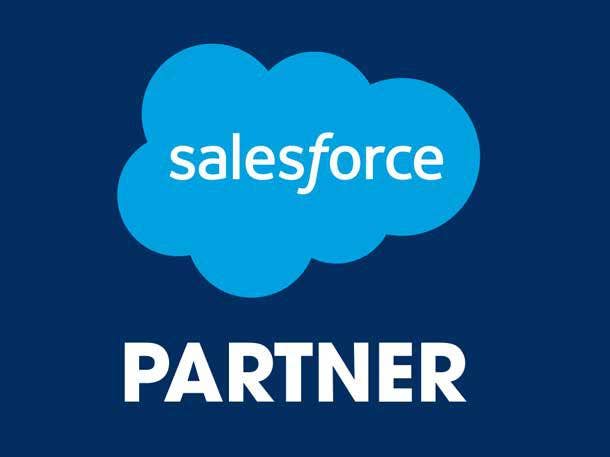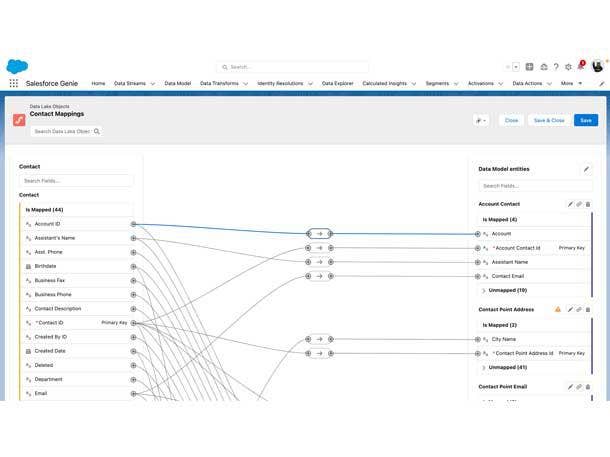Salesforce Q3 Earnings Preview: 5 Big Things To Watch
Despite Salesforce cutting guidance last quarter, multiple investment firms have issued positive reports.

Customer spending, employee layoffs and key executive exits, the rollout of Salesforce Genie, strategies around Slack and the presence of an activist investor are some of the things investors will look for when the enterprise applications vendor reports earnings Wednesday for the third quarter of its fiscal year.
San Francisco-based Salesforce will hold third-quarter earnings Wednesday at 5 p.m. ET, according to the company.
Despite Salesforce cutting guidance during the previous quarterly earnings report, multiple investment firms have issued positive reports around the customer relationship management software provider and the potential that it can beat lowered expectations.
[RELATED: Salesforce Cuts Guidance, Reports ‘Measured’ Customer Buying Amid Economic Uncertainty]
What To Expect From Salesforce’s Q3 2022 Earnings Report
A November report from Morgan Stanley even said Salesforce is in the “best position” in an environment of slow demand and low valuations, alongside work management vendor Smartsheet.
The report noted average software stocks down 45-plus percent year to date. Morgan Stanley expects cautious fourth quarter revenue predictions from multiple vendors.
Here’s what you need to know.

Customer Spending
One of the biggest reveals during Salesforce’s previous quarterly earnings was the softening of customer purchasing amid economic slowdown in the United States. Analysts will no doubt look for more signs from Salesforce of how economic conditions are affecting the business.
According to a November report from Morgan Stanley, interviews with Salesforce channel partners gave the investment bank confidence in Salesforce passing the worst of the effects of the economic slowdown.
“While our channel conversations were mixed for the second consecutive quarter during Q3, partner commentary suggests macro headwinds consistent with those observed towards the end of Q2, leading us to believe concerns around a more meaningful slowdown in growth near term are likely overblown given a lack of material worsening of the environment in August through October,” according to the report.
In August, Salesforce cut its guidance for how much it expects to make this fiscal year, with co-founder and CEO Marc Benioff saying that Salesforce expects to see between $30.9 billion and $31 billion in revenue, about 17 percent growth year over year, but keeping the same 20.4 percent operating margin.
It was the second haircut to guidance this year from Salesforce. In March, the company said it expected between $32 billion and $32.1 billion in revenue for the year. Then in May, the company decreased the guidance to between $31.7 billion and $31.8 billion.
Benioff said that, back in July, he and his team saw “customers becoming more measured in the way they buy” and sales cycles “get stretched” with deals “inspected by higher levels of management.”
“Nearly everyone I’ve talked to is taking a more measured approach to their business,” he said. “We expect these trends to continue in the near term.”
Co-CEO Bret Taylor echoed Benioff. “We’re in a more measured buying environment,” he said. “Executive teams are scrutinizing all purchasing decisions, and we are seeing some deals take longer to close. I personally met with over 100 CEOs this quarter in my travels across Latin America, Europe and North America. And digital transformation remains their top priority.”
Taylor continued: “But the focus of the conversation has shifted meaningfully toward productivity, efficiency and time-to-value. In this environment, our Customer 360 portfolio is uniquely positioned to enable our customers to deliver both growth and cost savings.”

Employee Changes
Salesforce has shed employees and seen major leadership changes since its last quarterly earnings report. Analysts will likely seek answers on the effect these changes have had on the company’s bottom line.
The company confirmed this month that President and Chief Strategy Officer Gavin Patterson will leave Jan. 31. In August his role changed to chief strategy officer from his earlier title of chief revenue officer.
In a November report, investment bank KeyBank said it looked forward to the earnings call for “further commentary” given the “relatively quick departure for Gavin Patterson, who will only have served as president and chief strategy officer for six months.”
Tableau channel chief Julie Bennani is also no longer with the company, which plans to roll out a combined Tableau, MuleSoft and Salesforce partner program to partners starting Feb. 1.
In October, Salesforce confirmed that it “ended contracts with some temporary recruiting contractors,” with former employees posting on LinkedIn to say “90+” Salesforce employees were gone. The next month, plans by Salesforce to lay off hundreds of workers came to light. Salesforce has more than 70,000 workers.

Salesforce Genie Roll Out
In September, during Salesforce’s annual Dreamforce conference, the company unveiled Genie, a feature co-CEO Taylor called “the most significant shift to the Salesforce platform” in 20-plus years.
The real-time customer data platform runs on the Hyperforce Salesforce public cloud infrastructure and aims to ingest and store real-time data streams at a massive scale and unite them with transactional data.
The platform can bring data from mobile, web, application programming interfaces (APIs), legacy data using Salesforce subsidiary MuleSoft, historical data from proprietary data lakes and other means, according to Salesforce.
Genie makes a unified customer profile record called a graph and allows actions on the graph across Customer 360, including in industry services, AppExchange and custom applications.
Analysts might look for signs the feature is opening up new opportunities for the vendor.

Slack And Cloud Strategies
Analysts will likely look for any updates around Slack, which Salesforce bought last year for $27.7 billion.
A report from investment firm Wedbush was positive about the cross-selling potential among other Salesforce products and Slack.
“We also note the Slack deal is starting to gain traction within the CRM ecosystem and we believe is starting to result in cross-sell opportunities across the board speaking to the underlying potential for this controversial acquisition looking ahead,” according to the report.
Wedbush also praised Salesforce’s efforts around getting customers to buy multiple cloud products. Four-plus clouds representing about 20 percent of total customers, about 85 percent of total annual recurring revenue, according to the firm. Wedbush expects the number to grow.

Starboard Looms
Activist investment firm Starboard Value revealed a stake in Salesforce back in October, saying that the company “Represents an Opportunity to Own a High-Quality and Sticky Business at an Attractive Valuation with the Potential for Significant Value Creation Through a Better Balance of Growth and Profitability,” according to a presentation.
If analysts don’t ask about Starboard directly, they may look for signs that the firm is helping Salesforce increase its margins.
For Salesforce, which is working toward $50 billion in revenue by fiscal year 2026, “as growth has slowed, the company has not yet produced margins expected from its leadership position” in customer relationship management (CRM), according to Starboard.
“Salesforce has not realized the benefits of operating leverage over the last several years, and the Company has generated significantly lower incremental margins than peers” Oracle, Microsoft, Adobe, Intuit, SAP, Workday and ServiceNow, according to Starboard.
The presentation put Salesforce at No. 1 in marketing campaign management, customer service applications and model-driven application platforms. It put Salesforce at No. 2 in analytics software, integration software, digital commerce applications and the collaboration market.
Starboard founder Jeff Smith told CNBC in a televised interview that he and his New York-based firm want to see Salesforce focus more on operating margins and improving value for shareholders.
“Salesforce is a great company, really a terrific company,” Smith told CNBC. “Salesforce is ingrained in the fabric of so many companies and has become so important in the way they operate and conduct business.”
But, he continued: “They’re not dropping as much to the bottom line. They haven’t been as focused on operating margins as we think, maybe, they should be.”